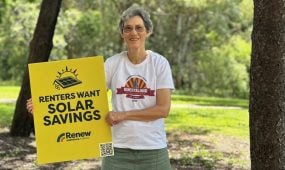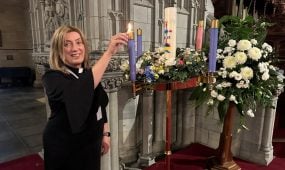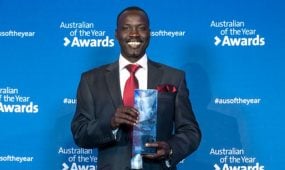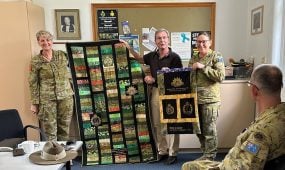Q&A with ICU doc, musician, Paralympic gold medallist, Franciscan and newly-ordained Deacon, The Rev’d Dr Gemma Dashwood OAM
Spotlight Q&A
Meet Gemma Dashwood and find out how her faith and work as a doctor intersect, how she became a Gold medal-winning Olympian, what person of faith inspires her the most and why, her favourite scripture, what day she would like to relive and what she would write on a billboard
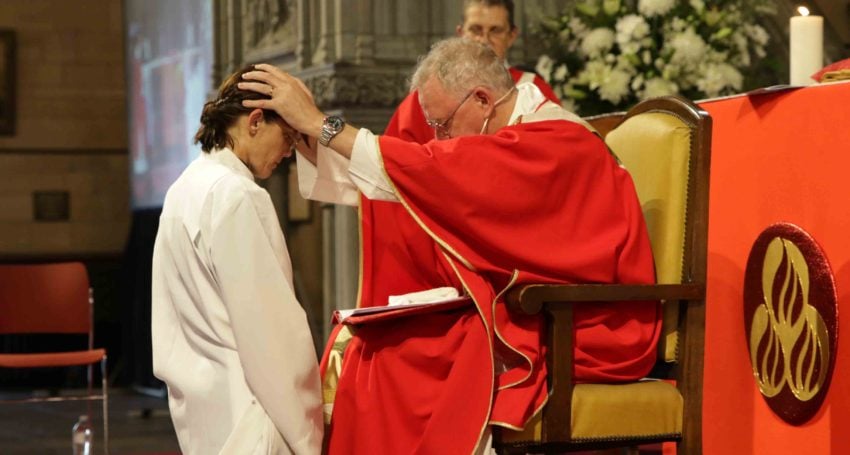
The Rev’d Dr Gemma Dashwood is a modern-day polymath. She was ordained a Deacon earlier this month at St John’s Cathedral and volunteers in a number of Anglican Church Southern Queensland roles when she is not working as an ICU Specialist.
Where do you currently live and where do you worship?
I currently live in Grandchester, west of Ipswich. My personal worship occurs at St Paul’s, Ipswich, and I am working as a non-stipendiary Deacon in the Parish of Goodna.
How long have you been involved in the Anglican Church and in what roles?
The Anglican Church has always been part of my life – I was baptised as a newborn because no one was sure if I was going to survive. I have since worked in the Dioceses of Canberra-Goulburn, Newcastle and Southern Queensland. I have been a choir member; organist; Liturgical Assistant; Parish Council member, treasurer (never again!), secretary and Warden; and, Diocesan Council member.
What are your current roles, including any voluntary roles, and what do your roles involve?
I have just started working as a non-stipendiary Deacon in Goodna (although I still sing in the Cathedral and play the organ at St Paul’s). Ultimately, I would like to serve rural areas and areas of need as a non-stipendiary priest while continuing to work part time as a doctor.
What projects are you currently working on?
I am working with small groups within the Diocese, which is looking at diversity in the Church, and how collaborative leadership can be worked into the Formation programme.
Advertisement
What have been the highlights of your ACSQ service so far?
Presenting a Synod motion which aimed at supporting transgender children in Anglican schools, and having that motion passed. Being ordained!
What have been the key challenges of your roles so far and how have you worked through these?
Working through differences in opinions when it comes to various topics. The best outcomes have been when everyone has had a say and everyone has listened to each other. Coming to an agreement to disagree while remaining at peace with each other is the ultimate goal.
What are your plans and goals for the next 12 months?
Completing my Deacon’s year, finishing Clinical Pastoral Education (CPE) and aiming towards being priested. Oh, and passing my final ICU Specialist exams.
Can you tell us a little about your call to ordination?
I had not long moved to Queensland and was worshiping in a small semi-rural parish where I became Warden. As I became more involved in the running of the Parish, I felt that this was something that I would like to invest more of my time in. The ‘lightning bolt’ moment was when I read an ad (in FOCUS Magazine actually), from a parish in the far West begging for someone to celebrate a Christmas Eucharist with them. It was then I felt that I was being called to serve those people who otherwise wouldn’t have a priest to work with them.
Advertisement
What advice do you have for people who may feel a call to ordained ministry?
Don’t expect the road to always be smooth and straight. Be prepared to continually re-evaluate what God has in mind for you. Always try and keep a sense of joy in what you are doing.
How does your work as an intensive care doctor and your faith intersect?
When dealing with people who are critically ill (and their families), healthcare workers are in a very privileged position as they walk with the patients through some of their darkest moments. I draw strength from my faith to allow me to do that, and regardless of the patient’s background, I hope that I can provide a sense of peace and comfort.
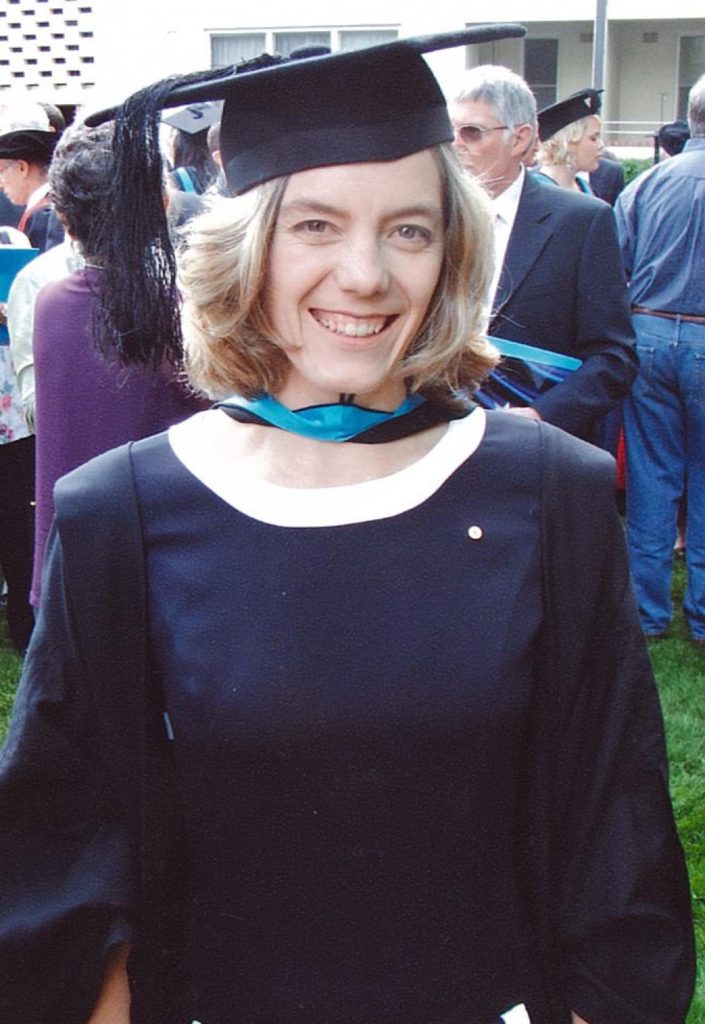
Gemma graduated with a degree in Medicine in 2007
Can you tell us a little about your personal faith journey?
I am an only child and was brought up to be an independent thinker. My Mother is a cradle Anglican whereas my Father is a self-proclaimed atheist. I was allowed to develop my own beliefs, and from a very young age decided for myself to go to church with Mum. It all grew from there.
How does your faith inspire you and shape your outlook, life choices and character?
My faith gives me strength, and it allows me to acknowledge God’s power and love. I hope that the choices I make in my life can then reflect the love of God so that others may understand the gift we are all offered.
What is your favourite scripture and why?
“By day the Lord commands his steadfast love, and at night his song is with me, a prayer to the God of my life.” (Psalm 42.8)
During the day (or at night if on night shift!) in the ICU, I work in a world of noise and busyness with the love of God as my silent guide. But when the work is done and I am alone at home and offering up the challenges of the day, that love becomes my song which I sing back to God.
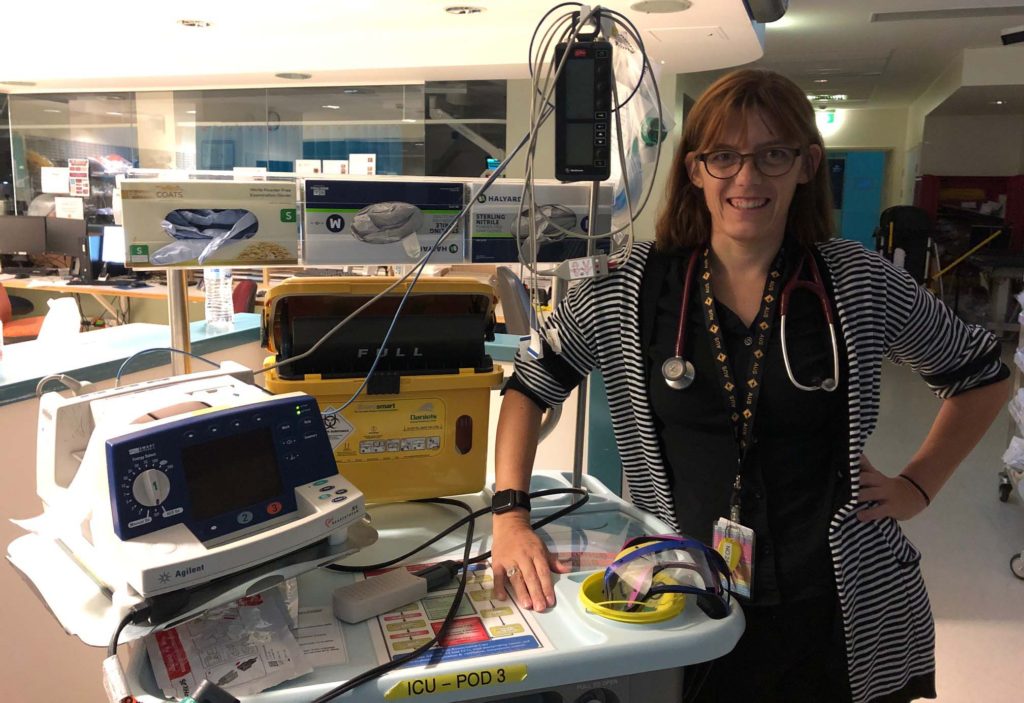
“During the day (or at night if on night shift!) in the ICU, I work in a world of noise and busyness with the love of God as my silent guide. But when the work is done and I am alone at home and offering up the challenges of the day, that love becomes my song which I sing back to God”
What person of faith inspires you the most and why?
I have been a Tertiary Franciscan for many years so I would have to say St Francis of Assisi. His approach towards God’s creation (including animals), and passion for peace resonate strongly with me. Julian of Norwich and Hilda of Whitby follow closely.
What are the primary strengths of the Church and what is the best way to make the most of these for the benefit of our communities?
I think the Church is at its best when it reaches out to people – people who are poor, oppressed, experiencing homelessness or otherwise living on the margins. There is no point keeping the glory of God’s love to ourselves – we need to share it in order for others to benefit.
What are the primary challenges currently encountered by the Church and what is the best way to overcome these for the benefit of our communities?
Disagreements over the approach towards some fundamental beliefs can be distressing for everyone. Learning to live with respect towards difference will be key.
How did you come to be a medal-winning Olympian?
Well, I started swimming for therapy as a child after hip surgery following septic arthritis which destroyed the bone and joint. I couldn’t walk, but I could swim. I got a bit carried away…
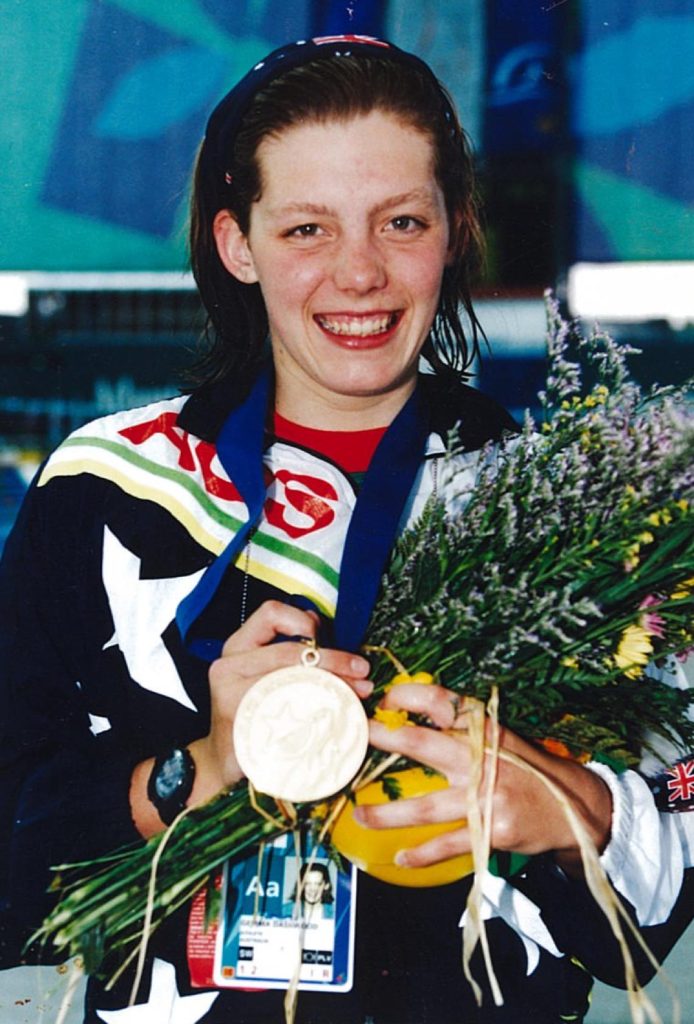
“At the gold medal ceremony in Atlanta in 1996”
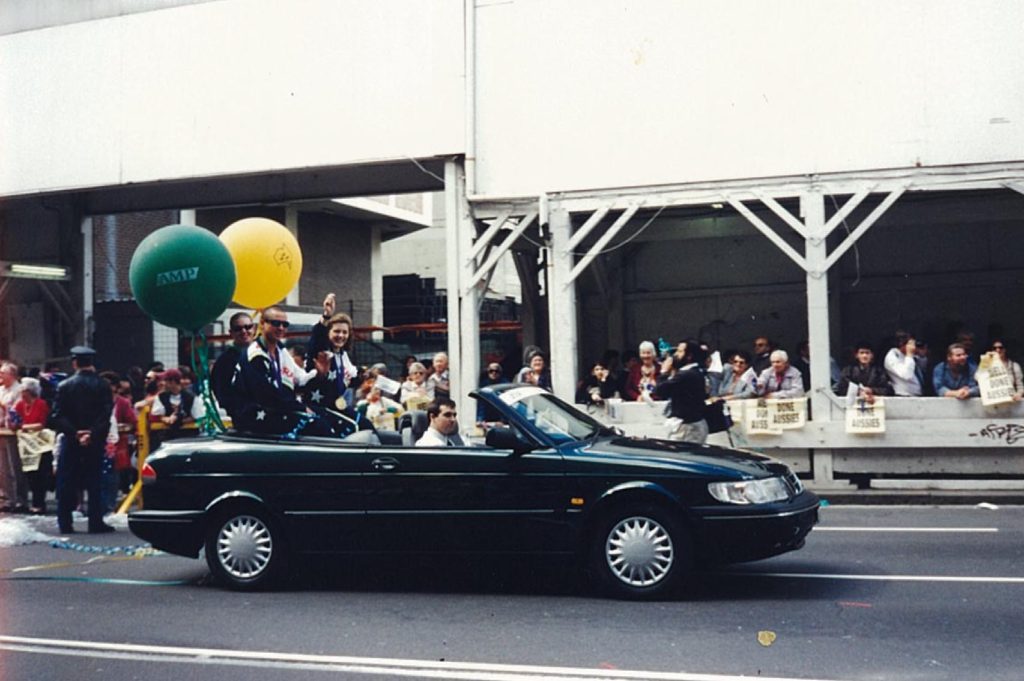
“Welcome Home Parade, Sydney, 1996”
What is the kindest gesture you have ever received or witnessed?
A few years ago, I was upset and so I went to a mid-morning Communion service at St Paul’s, Ipswich to get some quiet time and space. At the time of Communion, the priest (The Rev’d Selina McMahon), who had met me all but twice over the prior two years, called me by my name as she gave me the host. I have been a member of that church ever since, and that parish has become my second family. Isaiah 43.1 resonates strongly with me: “Do not fear, for I have redeemed you; I have called you by name.”
What is the best piece of advice you have ever received and who gave you this advice?
“Whatever you do, do it for a reason” (The Rev’d Selina McMahon). This works equally well for liturgy, as well as for life. If there is purpose in your steps, people are less likely to doubt you. And you are less likely to doubt yourself.
What do you do in your free time to recharge and relax?
Various things – exercise, play an instrument, listen to music, walk the dogs.
If you found yourself on a deserted island, what three things would you choose to have with you?
Music, Pepsi-Max and a clear mind.
If you could have a billboard with any text on it, what would it say and why?
“Believe it or not, you are loved.”
What book have you given away most as a gift and why?
Sarah Bachelard’s book Experiencing God in a Time of Crisis. It is open, honest and extremely meaningful. It can be read in a single sitting if necessary.
Where do you do your best thinking?
On the train.
What’s your best childhood memory?
Going to the beach at Christmas time.
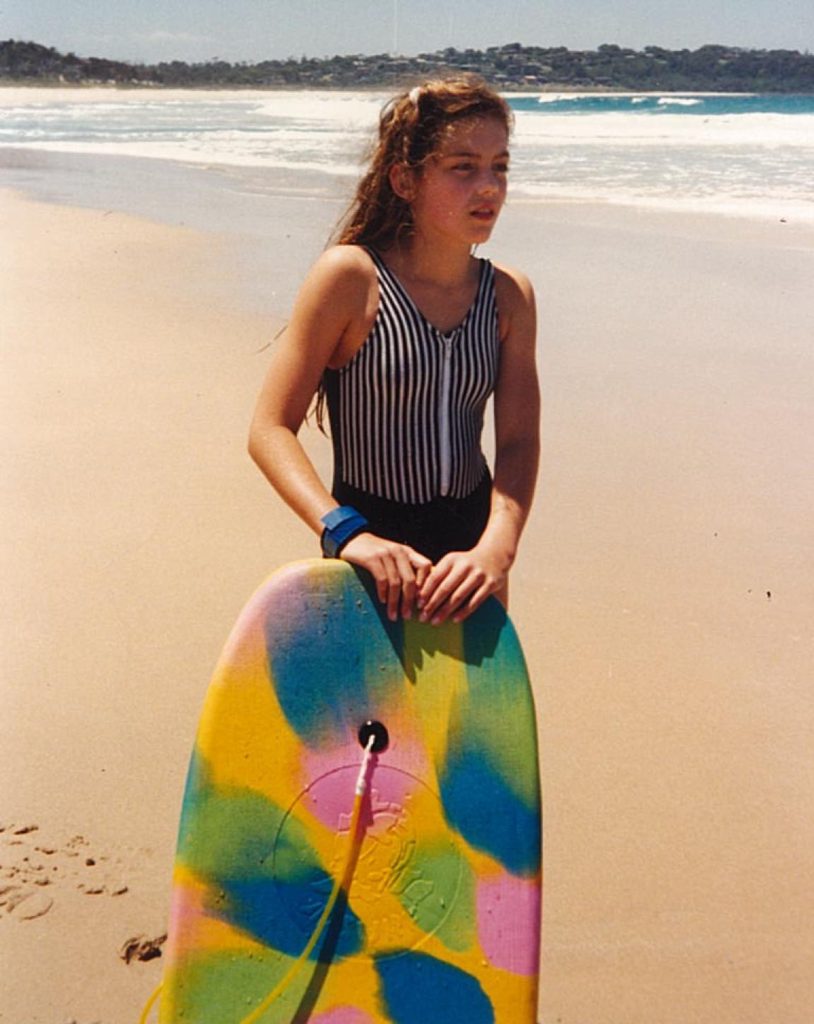
“At the beach, circa 1990. I’m using the board as a crutch because I couldn’t walk”
If you are having a bad day, what do you do to cheer yourself up?
Go home to my dogs and their unconditional love.
What day would you like to re-live and why?
The day I got my first puppy dog. That’s when I understood unconditional love.
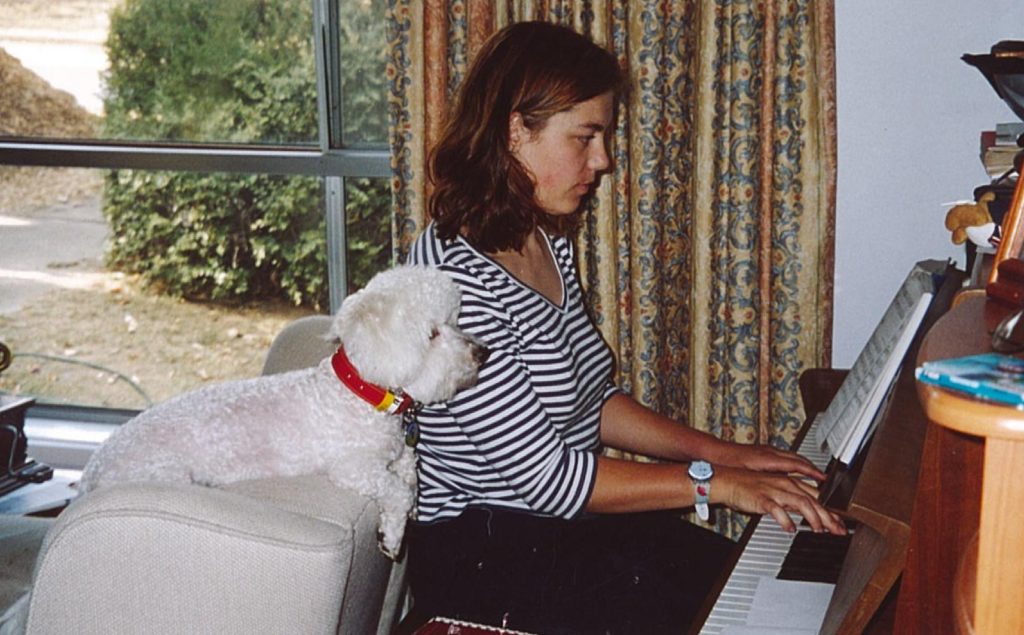
“My first dog Stuph, showing unconditional love by watching me play piano”
What’s your unanswerable question – the question you are always asking yourself?
Now what?

